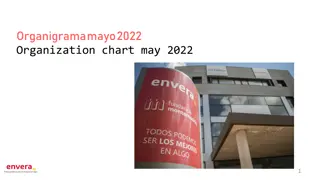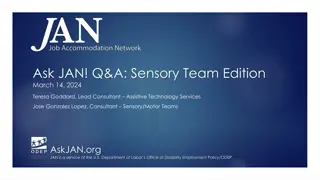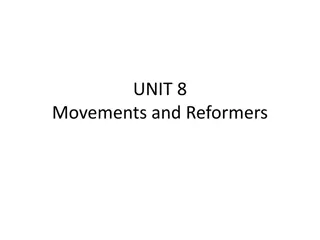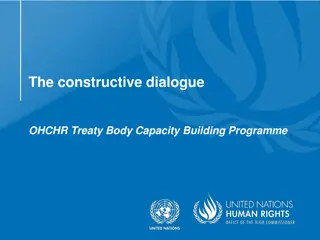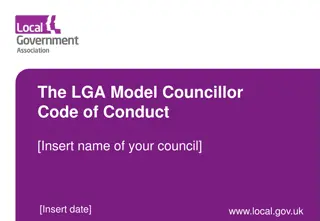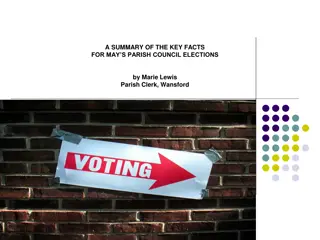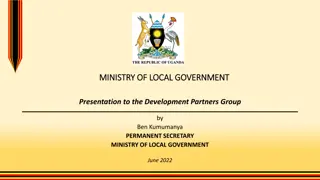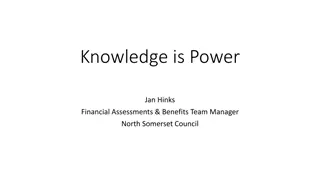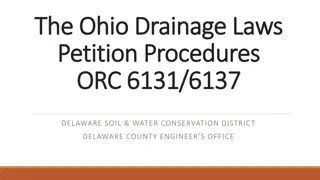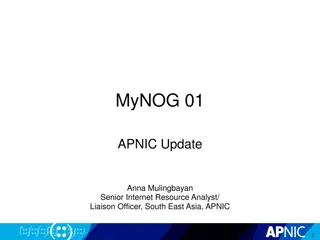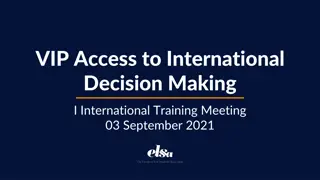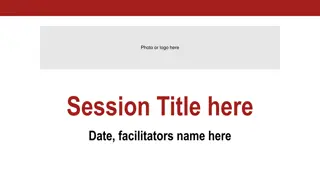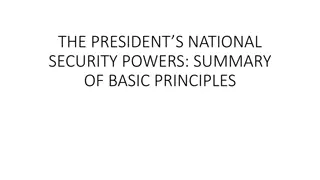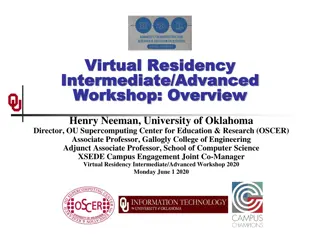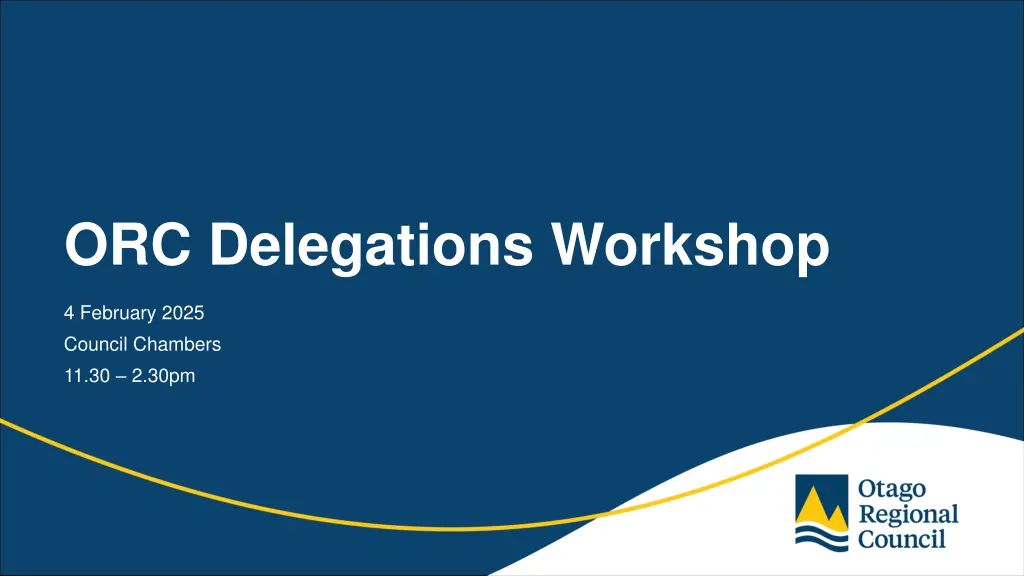
Effective Decision Making Workshop Insights
Explore the purpose and benefits of delegations in decision-making processes, along with legal considerations and types of decisions that can be delegated. Understand why delegating is key to efficient and strategic governance. Join the discussion on options for change and next steps in this informative workshop.
Download Presentation

Please find below an Image/Link to download the presentation.
The content on the website is provided AS IS for your information and personal use only. It may not be sold, licensed, or shared on other websites without obtaining consent from the author. If you encounter any issues during the download, it is possible that the publisher has removed the file from their server.
You are allowed to download the files provided on this website for personal or commercial use, subject to the condition that they are used lawfully. All files are the property of their respective owners.
The content on the website is provided AS IS for your information and personal use only. It may not be sold, licensed, or shared on other websites without obtaining consent from the author.
E N D
Presentation Transcript
ORC Delegations Workshop 4 February 2025 Council Chambers 11.30 2.30pm
Agenda Purpose of the Workshop Underpinning Principles and Guidance Discussion on options for change Agree next steps and actions arising
Purpose of the workshop When the current committee structure, TOR and delegations were adopted in 2022, a commitment was made to review the structure. Delegations and recommendations around decision making being delegated to committees with mana whenua representation was a recommendation out of last year s Te Tiriti Audit. Recs included; Delegation for decision-making on certain issues to the Council Committees with mana whenua representation. Co-designing relevant Council committee terms of reference with mana whenua to ensure a common understanding of mana whenua priorities. This is a good time to have the conversation. Any changes would need to be formally considered by Council.
Why Delegate LGNZ Advice Delegations are the secret to effective decision making as they enable governing bodies to manage their work loads, shift decision-making to those levels of the organisations/officials best suited to address particular topics and ensure attention is given to the important and strategic. LGA 2002 Schedule 7 Clause 32: (1) Unless expressly provided otherwise in this Act, or in any other Act, for the purposes of efficiency and effectiveness in the conduct of the local authority s business, a local authority may delegate to a committee or other subordinate decision-making body, community board, or member or officer of the local authority any of its responsibilities, duties, or powers except .
The Legal Stuff Some decisions cannot be delegated, these include: the power to make a rate the power to make a bylaw (although local boards have the right to recommend these for their local areas) the power to borrow money, or purchase or dispose of assets, other than in accordance with the long-term council community plan the power to adopt a long term plan, annual plan, or annual report the power to appoint a chief executive (cl. 32 of Schedule 7 of the LGA 2002).
Types of Decisions that can be delegated Administrative Financial Regulatory Legal
Reasons for Delegating - LGNZ Focusing on strategic matters: delegation can reduce problems of governing bodies spending time on detailed issues or matters that are urgent but minor; Scale: some decisions are better made in a smaller groups where all members can participate and matters be explored in detail. For example, decisions about procurement and decisions about the performance of a chief executive; Work load: some issues, such as a review of a district plan, will require frequent meetings and considerable reading/research. This is simply impractical for the governing body as a whole;
Reasons for Delegating - LGNZ Building knowledge and capability: some issues may require decision-makers to build up expertise in a specific area, such as asset management, to enable them to properly scrutinise management s performance. In some cases the members may not have the necessary expertise. External appointments can be made to committees but not the governing body; Facilitating community engagement: governing bodies tend to operate in a formal manner with limited time for debate. This is not conducive to citizen engagement. Delegations to committees or community boards enables citizens and local organisations to be more actively involved with the council.
Some Principles to Guide us Promotes efficiency and effectiveness of decision making Allows Council time to be spent on the matters that are important and strategic Promotes engagement and consultation with Community and stakeholders Supports and promotes engagement and participation of mana whenua in decision making Supports quality decision making through the appointment of specialist advisers What else????
ORC Committees Finance Environmental Science and Policy (2x iwi representatives) Environmental Implementation Regional Leadership (1x iwi representative) Public and Active Transport Safety and Resilience Audit and Risk (sub-committee) (1x appointed member)
Joint Committees Otago Regional Transport (NZTA plus Otago TA representatives) Civil Defence Emergency Management Group (Otago TA representatives)
Decisions Delegated Most Committees don t have decision making or financial delegations Finance has delegated authority to approve contracts and tenders up to $2M Joint Committees with regional membership have some statutory delegated decision making
Alignment to Org Structure Current Structure Strategy and Customer Finance People and Corporate Environmental Delivery Science and Resilience Regional Planning and Transport
Discussion What Committees What Committees are fit for purpose and could be left alone? What changes and updates to current committees do you want to make? What is likely to be needed now and into the next Triennium? What are the Options?
What Decisions and Delegations If any? Discussion What are the options? Are there any risks?
Next Steps Actions and taskings to move this work forward? Report back to Council How and when?

